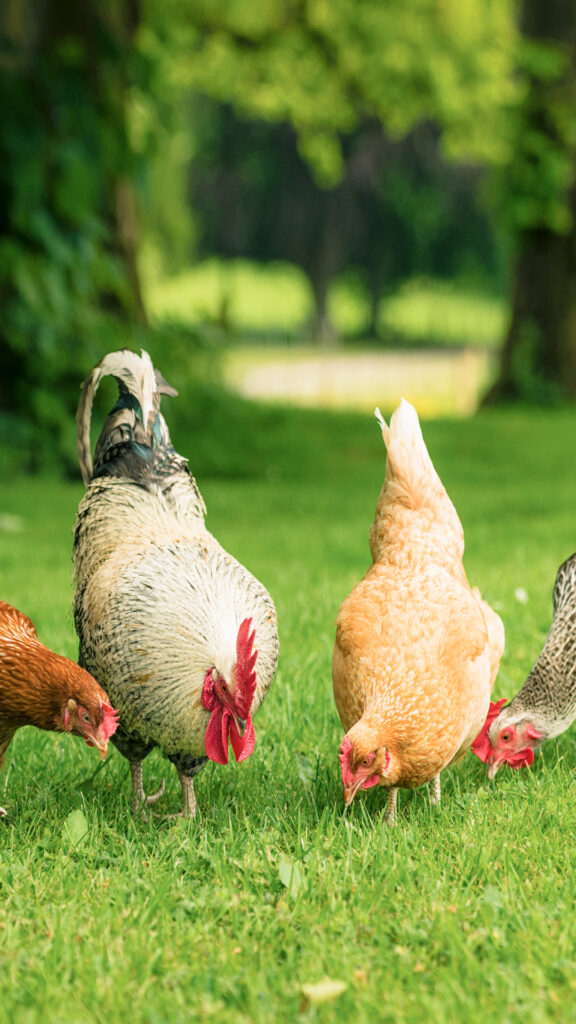The Ultimate Guide to Organic Lawn Care

In the quest for a lush, vibrant lawn, many homeowners are turning their backs on chemical treatments in favour of organic lawn care methods. These natural solutions not only promote a healthy, sustainable environment but also ensure the safety of families, pets, and local wildlife.
This guide dives deep into organic lawn care, exploring practical advice and the best natural products for maintaining a beautiful lawn without the need for harmful chemicals.
Why Opt for Organic Lawn Care?
The movement towards organic lawn care stems from a growing awareness of the environmental and health risks associated with chemical fertilisers and pesticides.
Organic methods focus on nurturing the soil and using products that work in harmony with nature, rather than against it. The benefits of this approach include:
- Environmental Protection: By avoiding synthetic chemicals, organic lawn care reduces pollution and protects water sources.
- Soil Health: Organic practices enhance soil fertility and structure, promoting a more resilient lawn.
- Safety: Natural products are safe for children, pets, and all local fauna, minimising the risk of exposure to toxic substances.
- Water Conservation: Healthy, organic soils retain moisture more efficiently, reducing the need for frequent watering. This becomes ever more important as our climate warms.
Leading Organic Lawn Care Products
- Organic Fertilisers: These are derived from natural sources such as compost, manure, and seaweed, and provide a slow, steady release of nutrients to the lawn.
- Neem Oil: An effective organic pesticide, neem oil controls a variety of pests without harming beneficial insects.
- Seaweed Extracts: Packed with minerals and growth hormones, seaweed extracts like Seasol promote robust lawn growth and enhance stress tolerance.
Manure-Based Organic Fertilisers
 Incorporating organic fertilisers into your lawn care routine offers a range of benefits for soil health and plant growth.
Incorporating organic fertilisers into your lawn care routine offers a range of benefits for soil health and plant growth.
Chook poo
Products like Yates Dynamic Lifter Lawn Food, Superfly All Purpose Organic Fertiliser, and Neutrog’s Rooster Booster Organic Fertiliser are excellent choices and are based on chicken manure.
They are rich in essential nutrients beneficial for soil and plant health.
They typically contain a balanced mix of nitrogen (N), phosphorus (P), and potassium (K), along with trace elements such as sulphur, calcium, and magnesium.
Nitrogen supports leaf and stem growth, phosphorus is crucial for root development and energy transfer within the plant, and potassium aids in flower and fruit formation, as well as overall plant health.
These organic fertilisers slowly release nutrients, improving soil structure and fertility over time.
You can spread them evenly by hand as directed or with a fertiliser spreader.
Horse poo
Horse manure is also a valuable organic fertiliser, offering a range of nutrients essential for plant growth.
It also contains nitrogen (N), phosphorus (P), and potassium (K), albeit in lower concentrations than chicken manure.
Horse manure also improves soil structure, increases moisture retention, and adds organic matter to the soil, encouraging beneficial microbial activity.
Horse manure should ideally be composted for at least three to six months to ensure it’s safe from pathogens and weed seeds.
This period allows for sufficient decomposition and heat generation within the compost heap, which helps kill off unwanted seeds and pathogens.
Proper turning and maintenance of the compost heap are essential to achieve a consistent and effective composting process.
Top dressing with compost
Topdressing a lawn with compost involves spreading a thin layer of compost over the grass.
This process can help improve soil structure, moisture retention, and nutrient content, leading to a healthier lawn.
For the best results, top dressing is typically done in the spring or autumn and over a recently aerated lawn.
The compost should be finely screened and free of large debris to ensure an even application and to avoid smothering the grass.
Keeping weeds away organically
When considering organic lawn care, it’s essential to focus on weed management strategies that align with environmental stewardship.
Crowding out weeds
One effective approach is to introduce groundcovers or fast-growing plants to compete with and naturally suppress weed growth.
This method leverages the ecological principle that a well-occupied space leaves little room for unwanted species to thrive.
Grass varieties such as Sir Walter Buffalo have a very tight growth habit, which can effectively smother many common weeds.
Hand weeding
In addition to plant competition, consistent vigilance plays a crucial role in organic weed control. Regular monitoring and prompt removal of young weeds prevent their proliferation and seed spread.
Techniques such as hand weeding, hoeing, or using a whippersnipper to cut them down before they can flower and seed are simple yet effective.
It’s a proactive way to maintain the health and appearance of your lawn without relying on chemical herbicides.
Solarisation
Another innovative method is solarisation which can be used on garden beds, which involves using clear or black plastic to trap heat on the soil surface, effectively “cooking” the weeds beneath.
This process not only kills existing weeds but also helps reduce their seeds’ viability, offering a longer-term solution to weed management.
While it requires patience, it’s a powerful technique, especially when combined with organic amendments to the soil after the plastic is removed to support beneficial microbial life.
Just remember, this is not a technique to use on an actively growing lawn, as you will deprive it of sunlight and kill the lawn quickly.
Weed spraying
Lastly, organic sprays and homemade solutions can offer targeted weed control without harming the lawn or the environment. Ingredients like vinegar, salt, and certain essential oils can be effective against weeds when used carefully to minimise soil impact.
To create an effective homemade weed killer:
- Combine 3.75 Litres of white vinegar with 1 cup of salt, stirring until the salt is fully dissolved.
- Add 1 tablespoon of liquid dish soap to the mixture to enhance its sticking power to weed leaves.
- Transfer this solution to a spray bottle for easy application.
- Spray generously on weeds, targeting their leaves and stems on a sunny day to boost effectiveness.
- Exercise caution to avoid desirable plants, as this potent mix can harm any vegetation it contacts.
Remember, using a lot of this solution over time may affect the salinity of your soil, so don’t overdo it.
Natural Lawn Care Ideas
- Composting: Enriching your lawn with compost improves soil structure and adds essential nutrients.
- Lawn Aeration: Aerating your lawn enhances oxygen, water, and nutrient penetration, encouraging deeper root growth.
- Proper Mowing Techniques: Maintaining the optimal grass height and using a sharp mower blade are crucial for lawn health.
- Efficient Watering Practices: Overwatering can harm your lawn. It’s better to water deeply and less frequently to foster strong roots.
Transitioning to Organic Lawn Care
Switching to organic lawn care is a gradual process that starts with understanding your soil’s needs.
Incorporating organic products and practices slowly can lead to a sustainable, vibrant lawn ecosystem over time. Patience and persistence are key, as the benefits of organic lawn care accumulate with each passing season.
Taking an organic approach to the extreme means moving to a Permaculture approach.
Permaculture is a way of designing gardens and farms so that they work like natural ecosystems, aiming to be sustainable and self-supporting.
It focuses on using natural resources wisely, recycling within the system, and supporting biodiversity to create healthy, productive environments.
Common permaculture practices include:
- Composting to recycle waste into soil nutrients
- Using rainwater harvesting systems to conserve water
- Creating swales for efficient water use and soil moisture retention
- Implementing companion planting to enhance plant health and yield
- Designing gardens with perennial plants to reduce soil disturbance and maintain biodiversity
These practices aim to create sustainable, self-sufficient systems that work in harmony with the natural environment. But it’s a bigger topic that warrants another article!
Organic lawn care represents a commitment to environmental stewardship and personal health.
By choosing organic products and employing natural lawn care strategies, homeowners can enjoy lush, green lawns that are not only aesthetically pleasing but also safe and sustainable.
As society continues to embrace organic methods, our gardens and lawns can become vital parts of a larger ecosystem, supporting life and biodiversity.
you may also like
How to lay a lawn
When getting ready to lay down instant turf, don't skip the crucial step of prepping your soil. Follow these easy guidelines for a perfect foundation.
What is Lawn Solutions Australia?
Lawn Solutions Australia, abbreviated as LSA, stands as a nationwide network comprising locally owned and predominantly family-operated turf businesses including Cobbitty Turf, creator of The Lawn Sol

